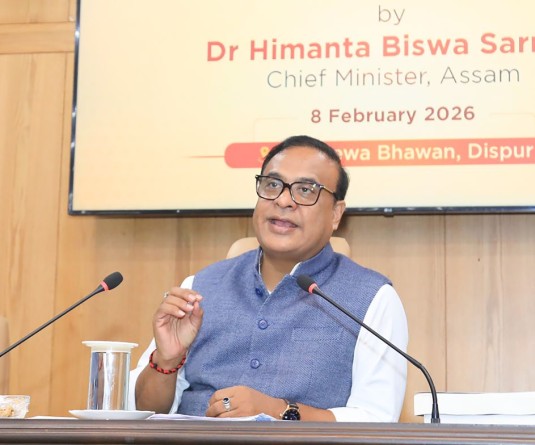
Newmai News Network
Imphal | October
As many as 18 organisations including student bodies and bar associations in Manipur on Tuesday have condemned the Manipur government's plan to enforce an ordinance to strengthen the Narcotics Drugs and Psychotropic Substances (ND&PS) Rules.
The Manipur government, in a cabinet meeting convened on October 15 last, had cleared the deck to promulgate an ordinance that will reward punishment of two to four years of jail term for people involved in drug business while imposing a fine of Rs 1 lakh.
The organisations termed it as an act of diverting from the real issue and trying to take political mileage considering the upcoming by-election, at a time when the state is feeling the heat of the coronavirus outbreak.
Among others, the organisations opposing the ordinance included All Manipur Bar Association (AMBA), four student bodies, women organisations, human right bodies and organisations campaigning against drug and alcohol abuses in the state.
While strongly condemning the government decision to enforce the “regressive ordinance”, they alleged that the proposed ordinance is not only unconstitutional but also violates the basic human rights of drug users by treating them as traffickers.
“The hurried way in which this ordinance is brought out when the Manipur State Drug Policy is been discussed in the public domain seems to be a diversionary tactics from the real issue of convicting drug lords and to make cheap political propaganda in view of the upcoming by-election,” they stated in the joint statement.
The Narcotic Drugs and Psychotropic Substances Act, 1985, commonly referred to as the NDPS Act, is an Act of the Parliament of India that prohibits a person the production/manufacturing/cultivation, possession, sale, purchasing, transport, storage, and/or consumption of any narcotic drug or psychotropic substance.
According to this Act, any person found with the possession of prohibited drugs beyond three milligrams can be punished and put in prison for two years along with a fine of Rs 1 lakh.
Those possessing three milligrams of drugs were considered as “possession for personal consumption” and exempted from the purview of the Act.
However, under the ordinance any person found in the possession of drugs whether one milligram or 100 kg will have to face the brunt of two to four years imprisonment and fine of up to Rs 1 lakh.
“This act of imposing penalty for offences not covered under the parent NDPS Act seems to be in clear violation of the Article 35 of the Constitution of India,” the organisations pointed out.
“It is also a diversionary tactic from the real and core issue of concern of the public to bring the big drug peddlers to justice,” it added.
Under the new rule, there is no clear demarcation between a drug user and a drug peddler. Both are considered as one entity and provided stern punishment.
The new rule is giving more power to the police personnel to harass and victimise the drug users, and on the other hand, provides free hand to the drug peddlers and mafias, the organisations alleged in the joint statement.
The popular demand of the public and the concern of the society are to arrest the big drug lords while the government, on the contrary, the present ordinance is hell bent on targeting the drug users, which is very unfortunate, it stated.
Again, if any person who is found with the possession of drugs for personal consumption is arrested and put behind bars, then it comes to the conclusion that nobody is allowed to take drugs for any purpose whatsoever, it pointed out.
"Under such circumstances, it would now be considered illegal to provide drugs inside drug-rehabilitation centres which are set up for rehabilitation purposes and the Oral Substitution Therapy (OST), Needle Syringe Exchange Program (NSEP) and other harm reduction programs taken up under the supervision of the National AIDS Control Organisation (NACO) and implemented by Manipur State AIDS Control Society (MSACS) will have to be closed down," they said.
"Another serious consequences of the ordinance would be that the police personal will now see drug users as their primary source of income generation and a person with a small amount of drugs for personal consumption will run away at the sight of police personal which would compel the later to use physical force to capture the earlier and unfortunately bring back the 'fake encounter' era once again," it added.
As such, the organisations considered the step of the state government in bringing out an ordinance as an act of diverting from the real issue and trying to take political mileage considering the upcoming by-election, at a time when the state is feeling the heat of the coronavirus outbreak, the joint statement added.






